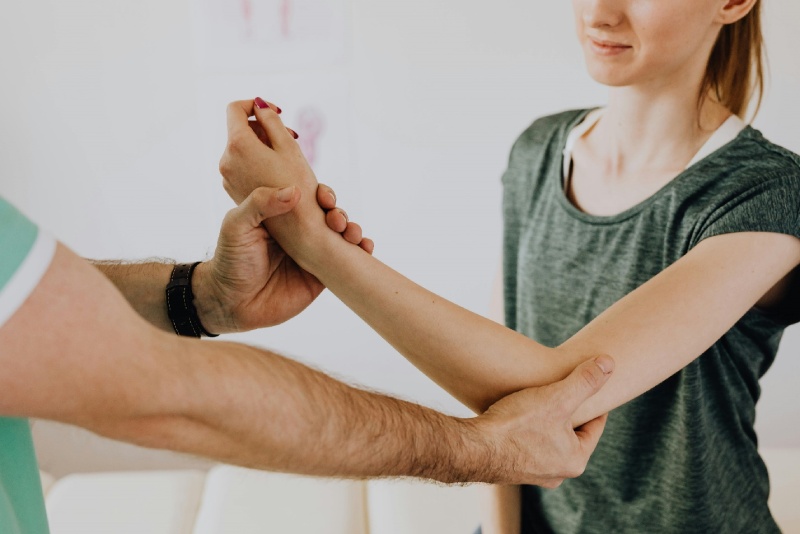Chronic joint pain affects millions of individuals worldwide, significantly impacting their quality of life by limiting daily activities and causing ongoing discomfort. In Lawrenceville, GA, where the community is active and vibrant, managing this condition effectively becomes essential for maintaining a healthy, fulfilling lifestyle. Recognizing the importance of addressing joint pain, it is essential to explore both medical treatments and lifestyle adjustments that can provide relief.
Understanding Chronic Joint Pain
Chronic joint pain is a persistent discomfort in the joints, often caused by various conditions such as arthritis, bursitis, and other musculoskeletal disorders. The pain can range from mild to debilitating and may be constant or flare up under certain conditions. It usually results from the wear and tear of cartilage, the cushioning material at the joint. As the cartilage deteriorates, bones begin to grind against one another, which can cause inflammation and pain.
In the city of Lawrenceville, maintaining optimal joint health is crucial for the active population. Residents have access to top-tier orthopedic facilities that specialize in a variety of musculoskeletal issues. Accessing expert orthopedic care in Lawrenceville, GA, is a vital step for residents when it comes to correctly diagnosing and managing joint pain. There are clinics in the area that offer comprehensive care, employing advanced diagnostic tools to tailor treatment plans that address the specific needs of each patient.
Medical Treatments for Joint Pain
When tackling chronic joint pain, a combination of medical interventions might be recommended depending on the severity and underlying cause of the pain. Initially, most doctors will suggest non-surgical treatments to manage symptoms and improve joint function. These include:
- Medications: Over-the-counter medications such as acetaminophen and NSAIDs (Non-Steroidal Anti-Inflammatory Drugs) are frequently used to relieve pain and lessen swelling. In more severe cases, stronger prescription medications may be necessary to provide relief.
- Physical Therapy: Engaging in physical therapy is often crucial for improving joint strength and flexibility. A licensed therapist can guide patients through exercises that enhance range of motion and strengthen the muscles surrounding the joints, thereby reducing the overall stress on the joints.
- Injections: For joints that do not respond to oral medications, injections may be an option. Steroid injections can reduce inflammation rapidly, while hyaluronic acid injections aim to lubricate the joints, easing movement and reducing pain.
These treatments, provided under the guidance of healthcare professionals, offer a solid framework for managing joint pain. For many, these initial steps are sufficient to significantly improve their quality of life. However, if pain persists, surgical options may be explored. Procedures like joint replacement or arthroscopic surgery can be effective for long-term relief when other treatments fail to provide sufficient relief.
Lifestyle Changes and Home Remedies
Alongside medical treatments, lifestyle modifications play a pivotal role in managing chronic joint pain. Simple changes in daily habits can markedly improve symptoms and prevent further joint damage:
- Dietary Adjustments: Incorporating anti-inflammatory foods into one’s diet can help reduce joint inflammation. Foods rich in omega-3 fatty acids, such as salmon and flaxseeds, are known to offer anti-inflammatory benefits. Similarly, spices like turmeric and ginger are noted for their pain-relieving properties. Supplements such as glucosamine and chondroitin may also be beneficial, though patients should discuss these with their doctor to avoid any adverse interactions with other treatments.
- Exercise: While it might seem counterintuitive to recommend exercise to those experiencing pain, engaging in low-impact activities such as swimming, walking, or cycling can significantly improve joint health without exacerbating pain. Tailored exercise plans developed with physical therapists can make sure that activities are safe and effective, emphasizing strengthening and flexibility.
These lifestyle interventions, combined with expert medical care, create a comprehensive approach to managing chronic joint pain. Local resources, including specialized clinics and community support, provide additional layers of support, making the management of joint pain more accessible and effective.
Alternative Therapies
Exploring alternative therapies can provide significant relief for many suffering from chronic joint pain. Practices such as acupuncture, massage therapy, and chiropractic care have gained popularity due to their effectiveness in reducing pain and improving mobility.
- Acupuncture: This traditional Chinese medicine technique involves inserting thin needles into specific points on the body. It is thought to stimulate the nervous system and release chemicals that either change the perception of pain or produce a sense of well-being.
- Massage Therapy: Regular massage can help reduce stiffness and pain by improving blood flow and reducing inflammation. It also aids in relaxing muscles, which can relieve pressure on the joints and alleviate pain.
- Chiropractic Care: Chiropractors use adjustments to restore joint function and support the body’s natural ability to heal itself. This can be particularly helpful for those with spinal issues contributing to their joint pain.
These alternative therapies are widely available, and can be tailored to individual needs, offering a personalized approach to managing joint pain.
Community and Support
Dealing with chronic joint pain can be challenging, but having a supportive community can make a significant difference. There are various support groups and resources that connect individuals dealing with similar issues. Sharing experiences and tips can be incredibly beneficial:
- Support Groups: Local hospitals and clinics often host support groups for people with chronic pain. These groups provide a platform for sharing personal experiences, coping strategies, and emotional support.
- Community Resources: There are also offers seminars, workshops, and classes designed to educate and empower individuals dealing with chronic joint pain. These resources often include information on the latest treatments, exercises, and nutritional advice to help manage symptoms.
When to Seek Professional Help
Recognizing when to seek professional help is critical in effectively managing chronic joint pain. If symptoms worsen or do not improve with initial treatments and lifestyle changes, it may be time to consult with a healthcare provider.
- Consultation Preparation: Preparing for a consultation is crucial. Keeping a pain diary that details the frequency, intensity, and triggers of joint pain can be incredibly helpful for healthcare providers. It also helps to prepare a list of questions, as that can maximize the benefits of the consultation, making sure that all concerns are addressed.
Living with chronic joint pain requires a multifaceted approach involving expert medical care, lifestyle adjustments, and community support. Embracing both traditional and modern treatments offers the best chance for managing symptoms and maintaining an active, fulfilling life. Taking proactive steps to manage joint pain improves physical health and enhances overall well-being, allowing individuals to engage more fully in their daily activities without being held back by pain.














